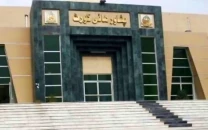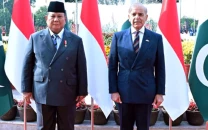SVI warns of India's ICBM test fallout
New Delhi plans a long-range intercontinental ballistic missile test later this month

The Strategic Vision Institute (SVI), an Islamabad-based think tank, has warned that India's projected test of a long-range intercontinental ballistic missile (ICBM) later this month could destabilise the region and carry "serious repercussions" for global security.
Indian media reports suggested that New Delhi was preparing to test its longest-range Agni series missile - possibly the nuclear-capable Agni V or Agni VI with Multiple Independently Targetable Re-entry Vehicle (MIRV) capability, the SVI said in a press release. A Notice to Airmen (NOTAM) has already been issued for August 2021, blocking a corridor of more than 4,700km in the Bay of Bengal.
The think tank stated that India's missile developments had accelerated since its membership of the Missile Technology Control Regime (MTCR) in 2016, which gave it access to advanced technologies and equipment. It added that India had also acquired armed drones from the United States and Israel, some of which were used during the May 2025 conflict with Pakistan.
"Developments of missiles with ranges of 8,000km and above and possessing nuclear capability are a clear manifestation of power projection globally and hegemonic designs," the SVI said, adding that such weapons would put Washington, Moscow, Brussels, Beijing and other major cities within striking range.
The think tank stated that India had already militarised and nuclearised the Indian Ocean with nuclear-powered submarines armed with submarine-launched ballistic missiles (SLBMs). It added that the testing of enhanced missile systems was intended to send a message to India's adversaries and strengthen its global power projection ambitions.
"The international community needs to persuade India not to take steps that undermine strategic stability and adopt policies that might endanger regional and global security," the SVI cautioned. The institute further urged New Delhi to "commit itself to good neighbourliness, end state-sponsored terrorism through proxies, cease oppression of Kashmiris, and comply with its obligations under the UN Charter and international law."





















COMMENTS
Comments are moderated and generally will be posted if they are on-topic and not abusive.
For more information, please see our Comments FAQ